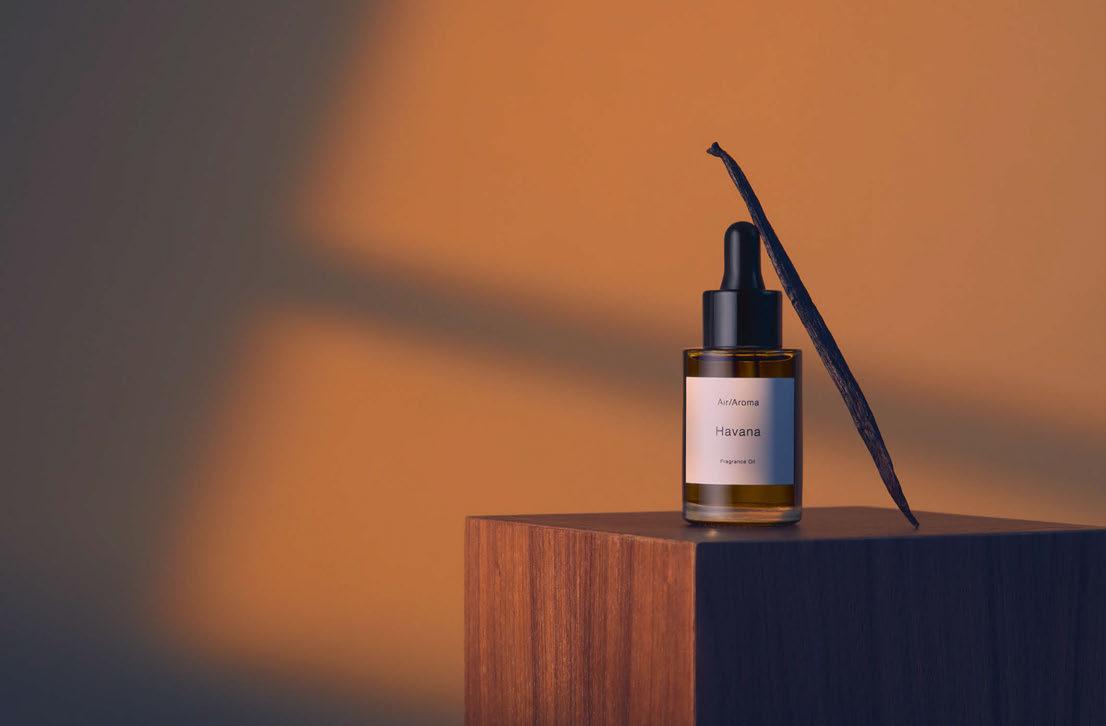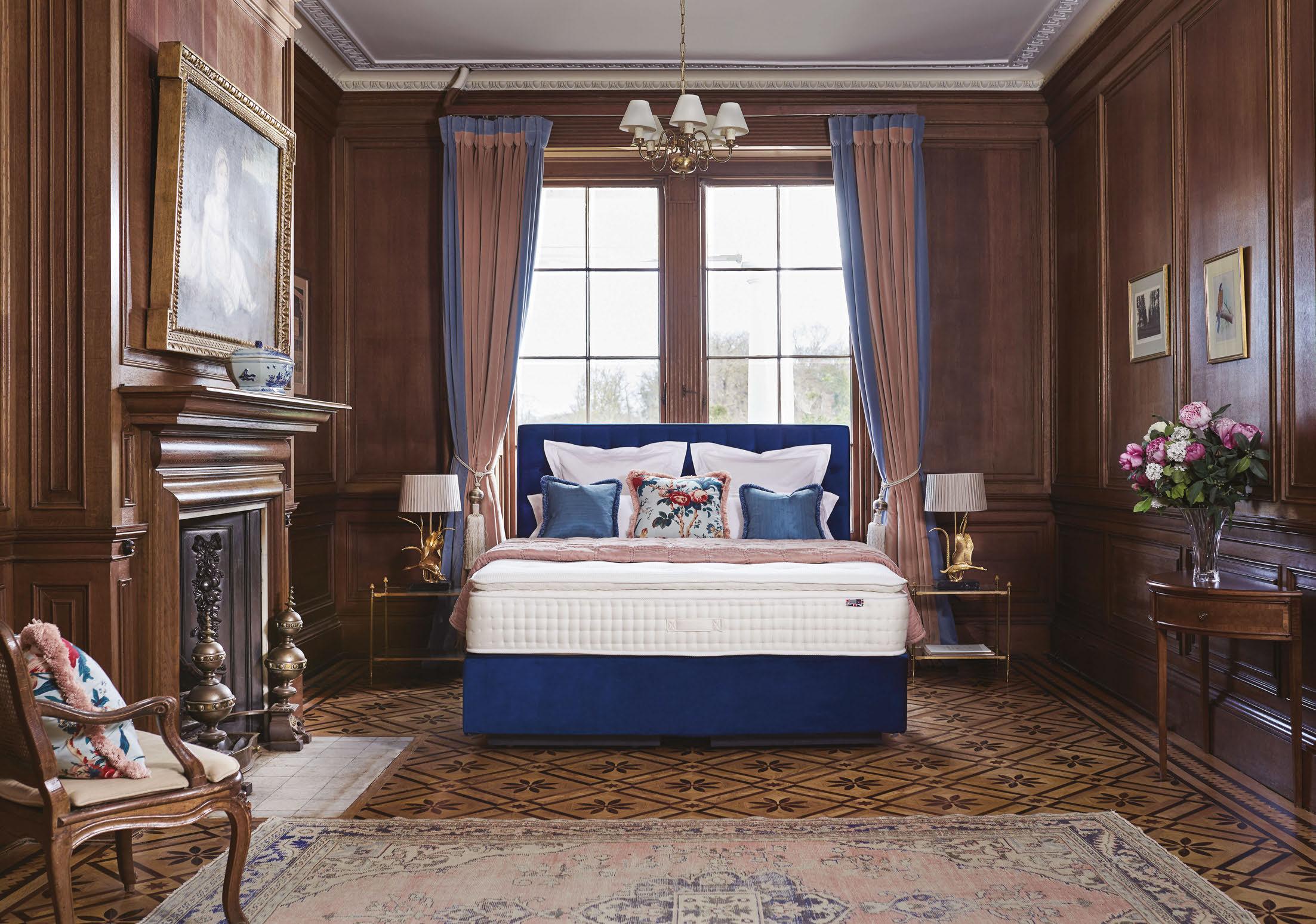
5 minute read
The Sweet Smell of Success
from Sleeper 98
As hotels become multi-sensory spaces with appeal beyond the visual realm, can signature scents and the efforts of fragrance designers make a difference?
Words: Kristofer Thomas

Astudy by the Sense of Smell Institute demonstrated that whilst visual recall falls to 50% after three months, humans can remember smells with 65% accuracy up to a full-year later. Be this freshly baked bread or a mysterious odour in a public bathroom, the fragrance of a space sticks in the mind for better or worse. Indeed, it is not only the scent that is remembered, but how the scent made the smeller feel in that moment, as similar research from Mood Media highlights that 75% of all emotions generated in a day are down to the olfactory sense.
Combined, this synthesis of staying power and emotional resonance has become a touchpoint for hospitality concepts looking to make a subtle yet lasting impact. As travellers have become increasingly motivated by the desire for experience, the hotel marketplace has become saturated with grand, swooping gestures in hopes of standing out in the sizeable crowd, but perhaps all it takes is a dash of aftershave to really charm guests and form a bond. It is not uncommon for people to have a signature scent, something that is returned to time and time again, so why should it be different for hotels, a medium progressively turning to individual and overarching identities for their properties that define both design and atmosphere.
“Strategic application of aroma within the design process opens a deeper level of communication with the consumer,” says Maurice Joosten, Creative Director for @Aroma, a scent marketing specialist with a collection of hotel clients including Hampshire’s Heckfield Place and Marylebone’s The Prince Akatoki. “When implemented artfully, scent triggers an often-unconscious response, engaging consumers more fully. Scents are able to enhance a certain dramatic quality of a space by adding notes that are light or heavy, soft or hard, masculine, feminine or androgynous, active or quiet, and so on.”
MAURICE JOOSTEN – @AROMA
Designed by Toshihiko Sakai, @aroma’s All In One Type professional diffuser creates aromatic spaces by releasing essential oils
At The Prince Akatoki, this work takes the form of a signature scent built on notes of lavender. Drawing on Japan’s blossom season, it brings a hint of Eastern zen to the first project beyond the country’s borders for Tokyo-based Prince Hotels & Resorts. Likewise, for the historic Fujiya Hotel in Kanagawa, which dates back to 1891, Joosten drew from the surrounding hills of Hakone to elevate proceedings with a scent rooted in place and geographical sensibilities. Via these methods, he notes that the fragrance is able to contribute “a more intuitive understanding of the brand narrative and values, while also contributing to customer loyalty”.
These tactics have long been used in the retail sector, where reports find that one-inthree shoppers stay longer in a store because of a pleasant scent, whilst one-in-five say a nice scent makes them more likely to buy something. Whilst hotels benefit from a more captive audience than retail spaces, this sentiment can be directly translated. If guests like what they smell, they will be happier. If that same smell can then engage them on a deeper level with some signature notes based on a hotel’s local or cultural context, then it can function to uniquely fuse branded content with lived experience – perhaps the ultimate goal for today’s luxury sector. “Scent marketing is more than just diffusing a pleasant fragrance in a space,” explains Alison Lobay of Air Aroma, the scent marketing and delivery system manufacturer with clients including Sixty Hotels, The William Vale and Virgin Voyages. “It is the art of taking a company’s brand identity, marketing messages and target audience, and translating these into a scent that amplifies these values. We are essentially creating a scent logo for brands.”
At Brooklyn’s The William Vale, this logo comprises notes of marine accord, sandalwood, leather, tonka bean, frankincense and white


© Lillie Thompson
Air Aroma’s Havana fragrance oil blends notes of Virginian cedar, whisky and oak with vanilla, incense and tobacco leaves
musk – a combination reflective of aesthetic touchstones in Carrara marble and glowing brass. This scent is subsequently delivered through the lobby by the brand’s own cold-air diffusion technology, part of a wider range of modernist-inspired diffuser units that double as sculptural design elements in their own right.
“To create a signature scent, we work closely with our client to ensure the scent fits seamlessly within their brand’s ethos, visuals, auditory cues and overall message,” Lobay adds. “In addition to our ambient diffusion equipment, we also help brands capitalise on their signature scent programme through sales of various retail items that we create, such as candles, reed diffusers and room sprays. This allows a hotel guest to take the scent experience home and keeps the hotel at the front of their mind, encouraging a repeat visit.”
In a marketplace wherein hotels are required to be so much more than shelter overhead and a square meal, only those with a unique identity that stay in the mind of guests will go on to generate not only commercial clout but so too the kind of cultural currency that sees guests consider their choice of hotel not only as a place to stay, but as an extension of a certain lifestyle.
The rise of scent marketing may now play a different role however, as the pandemic has seen the act of breathing, and likewise both the presence and quality of ventilation, burdened with health anxieties. Never before have guests been more aware of the air they breathe, and soon the function of scent marketers will be to reassure guests a space is clean as much as it is stylish. The next step for this sector then, may be found in combining signature fragrance tones with an element of purification, or at least crafting scents around this idea – giving the concept of cleanliness itself a distinct scent profile that eases some of these concerns now that the masks are coming off.
In the meantime, scent remains one of the most potent means of relaying brand standards, local context and cultural signifiers in a manner that truly stays fresh in the minds of guests.












